Guest Or Tenant?
February 23, 2015
The question has been asked, in what circumstances might a long term guest become a tenant and the provisions of the Residential Tenancy Act in British Columbia apply? Generally the Act does not apply to living accommodation occupied as “vacation or travel accommodation”. Would this exemption apply to long term guests? Well, unfortunately there has been little or no discussion in the courts of British Columbia to provide any guidance on the issue, however, similar legislation exists in Ontario which has been the subject of some court analysis. The courts in Ontario have looked to the “predominant purpose” of the commercial enterprise as opposed to necessarily the intention of the parties.
Some of the factors for consideration included:
- Is the occupation of the suite intended to be somewhat permanent, for example, did the occupier of the suite bring in personal items typically found in a home and not in a hotel, such as stereo equipment, rugs, pictures, lamps, etc?
- Is cooking permitted in the suite?
- Are typical hotel services, such as room service, available?
- Does the occupant have some measure of control over the suite, or could the innkeeper enter at will?
- Who is responsible for cleaning the suite?
To date, the length of stay has not been a factor considered by the courts in determining whether an occupant is a guest or a tenant. It would seem that the length of stay would not be a factor in that determination if the predominant purpose was to run a hotel, inn, or guesthouse.
Evictions
The authority for an innkeepers to evict guests is found in the Hotel Keepers Act. The Act governs inns, which is defined as hotels, motels, inns, taverns, and other places where the keeper is by law responsible for the goods and property of the guests. The Act specifically covers situations in which a guest is causing a “disturbance”. Disturbance is defined as follows: “disturbance of the peace of an occupant of an inn by fighting, screaming, shouting, singing or otherwise causing loud noise in the inn.”
The protocol, which must be strictly adhered to, is the innkeeper must request that the person who is causing the disturbance desist, and if they fail to do so or again cause a disturbance, request they leave the inn immediately. An innkeeper who fails to comply with this request provision set out in the Act commits an offence and is liable to a fine of up to $2,000.00. However, if the innkeeper believes on reasonable grounds there is a risk of harm, they need not make the request, but should leave the matter up to a peace officer who can make such a request and has the authority to arrest a person for their failure to comply with the request. In the event that the individual causing the disturbance fails to comply with the request, they are guilty of an offence under the act and liable for a fine of up to $2,000.00.
Occupiers Liability
It is trite to remind all businesses that invite the public onto their premises that they have a duty to maintain their premises in a reasonably safe condition. However, what is reasonably safe can depend on the activities that take place on the premises. Therefore, commercial liquor hosts, due to the nature of their business, and the impact that the consumption of liquor can have on their patrons, can cause a more stringent test for what is reasonable.< British Columbia has occupiers liability legislation not surprisingly called the Occupiers Liability Act. Pursuant to the act, an occupier is a person who:
- Is in physical possession of the premises, or
- Has responsibility for and control over the premises, the activities conducted on those premises, and the persons allowed to enter the premises.
Under those circumstances there can be more than one occupier for the same premises, meaning that both a landlord and a tenant can both be considered occupiers. The Act does however allow an occupier to “contract out” their responsibilities.
The occupier’s duty of care is set out in section 3 of the Act, as follows:
3(1) An occupier of premises owes a duty to take that care that in all the circumstances of the case is reasonable to see that a person, and the person’s property, on the premises, and property on the premises of a person, whether or not that person personally enters on the premises, will be reasonably safe in using the premises.
(2) The duty of care referred to in subsection (1) applies in relation to the
(a) condition of the premises,
(b) activities on the premises, or
(c) conduct of third parties on the premises.
With respect to the condition of the premises, the test is one of reasonableness. Particular areas of concern may include the condition of the floors, the adequacy of the lighting (particularly in stairwells) and the premises should be generally in good repair. The occupier should have a reasonable but not too onerous or ambitious program for inspection and maintenance. It is not sufficient merely to have the program in place, as the program then must be followed and complied with. It is possible to attract liability for failing to maintain a reasonable inspection/maintenance program.
Perhaps a more difficult area of potential liability is the duty of care that a commercial liquor host has in relationship to activities that occur on the premises. The duty “to take that care that in all the circumstances of the case is reasonable” may be restated as whether or not it is reasonably foreseeable that an injury may occur as a result of specific activities on the premises.
Therefore, if sponsored events or contests are held which by their nature carry with them greater potential for injury, there will be greater foreseeability that an injury will occur. The more problematic area involving activity on the premises involves the conduct between patrons and the relationship between the consumption of alcohol and acts of aggression which could result in assaults by a patron or patrons on other patrons, resulting in injury.
Apart from the provisions of the Occupiers Liability Act, liquor licensees are subject to extensive legislative requirement set out in the Liquor Control and Licensing Act, its regulations, and the Guide for Licensees in British Columbia, which together form the terms and conditions of the license. Those legislative requirements place added responsibility on the commercial liquor hosts to monitor their premises and the conduct and the extent of consumption of alcohol by their patrons.
No commercial liquor host will be able to guarantee that an altercation will not occur and/or that a patron may get injured as a result. However, the commercial social host can minimize the risk of these occurrences and potential liability by having reasonable programs in place such as sufficient security so as to properly monitor all aspects of the premises, a training program for employees, particularly door staff, in dealing with difficult and aggressive patrons, and an appropriate security program so as to be able to readily identify a patron with a bad reputation at point of entry.
In summary, it is reasonable foreseeable that there is an increased risk to personal safety in the commercial liquor host setting as a result of the inherent increased risk associated with the consumption of alcohol. However, the commercial host can alleviate that increased risk by putting in place reasonable, well thought out programs, and then following through with them.
Share this article:
Get your interests represented
As one of the largest law firms in the Interior, our lawyers have a broad range of specializations, ensuring that we have the experience to competently and professionally represent you.

